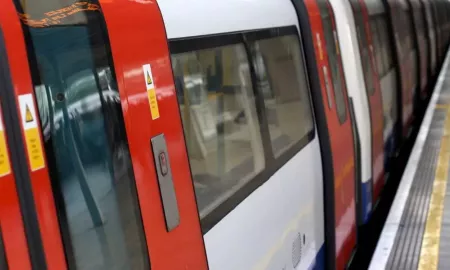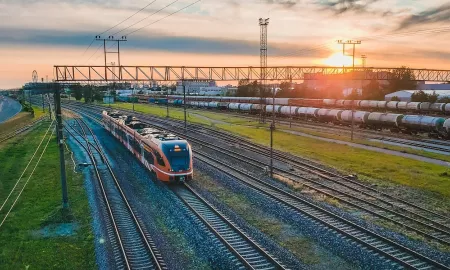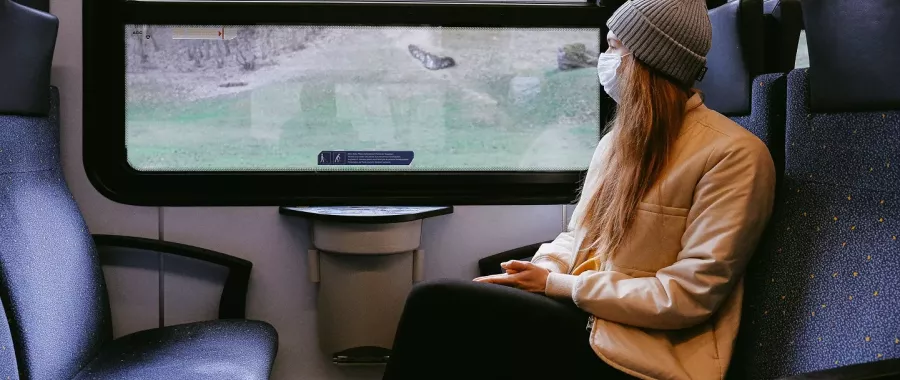SOCOTEC’s sustainability consultancy supports businesses in becoming more sustainable by saving energy and reducing carbon emissions in an effort to assist the government to achieve its Net Zero target by 2050.

Sustainability required
Many rail companies are supporting the government’s Net Zero target by reducing their carbon footprint through adopting sustainable policies and practices; many customers and investors are also demanding companies to act sooner rather than later. They can do so by embedding sustainability into their on-going investment and expenditure programmes, with their ultimate goal being to reduce emissions whilst maintaining reliable travel.
The rail sector can achieve this in a number of different ways. Organisations can look at all their buildings and processes, as well as vehicles that are used by fleet and staff business travel, and identify ways to make them more energy efficient.
A starting point would be to contact experts to perform energy monitoring and targeting to track existing energy consumption compared to future consumption after recommendations have been implemented. This would be part of carrying out energy audits on the buildings - all buildings, not just those frequented by members of the public, thus including staff areas, industrial and manufacturing/repair facilities. The previous twelve months of energy consumption would be analysed against the usage of the building in terms of heating, cooling, ventilation as well as general employee behaviour towards energy consumption. Recommendations on how energy can be saved would be presented in site reports, alongside the cost of any upgrades and the annual payback of return on investment. These recommendations could identify measures either with the fabric itself (walls, flooring, roofs, windows) or such as the replacement of heating boilers, air conditioning systems, air handling units, hot water systems and lighting. Often, upgrades to equipment controls can have a profound benefit, such as installing inverter drives to pumps and fans or preventing heating or cooling of areas outside of building operating hours.
A quicker, more generalised method could be to carry out draft EPCs (Energy Performance Certificates) which will show the current rating of each building, with A being the best and G being the worst for energy performance. These could then be modelled and analysed to see where improvements can be made, with subsequent draft EPCs being run in order to show the difference in rating after implementing various recommendations. Certain areas which are frequented by the public may already be required to have a DEC (Display Energy Certificate) carried out every twelve months. These are a more basic (less thorough) version of an EPC, as these are mainly to highlight how much energy a certain building has used during the previous twelve months.
What legal requirements should rail organisations consider with sustainability?
An EPC is a legal requirement for all buildings which are built, leased, or sold. For the rail sector this will include all station retail units which are leased to tenants. Currently a building must achieve a minimum of an E rating to enable a building to be leased or released. The minimum rating is under review with the intention that all buildings must achieve B or better by 2030.
Whilst performing boiler upgrades can provide efficiencies by using less gas (or oil), these are still reliant on fossil fuels and produce carbon (CO₂). In the future it might be possible to use hydrogen to fuel traditional boilers, however the technology is not quite there yet. The alternative is to replace them with either air source, or ground source, heat pumps, which use electricity to power them. “Green” renewable energy contracts can also be purchased from certain energy suppliers who guarantee that all your electricity comes from renewable energy. Certificates are produced which you can use to show your customers that you are serious about cutting your carbon emissions.
All this can be taken a step further, by adding your own renewable energy into the mix. Solar PV can be fitted to certain buildings in order to generate your own electricity. As the price of electricity has largely increased over the past few months, installing solar panels could be a good solution, as it not only reduces how much electricity (and hence carbon) you import from the grid, over time it could save you a significant amount of money each year. The payback period has now come down to around three years, where not so long ago it was eight to 10 years; potentially after three years a portion of your electricity will be costing you nothing. Wind turbines are another possible source of renewable energy, though there are frequently more obstacles to overcome before these can be installed and utilised, making them not a suitable option for everyone.
Sustainability legislation
Current legislation can also be a driver of sustainability. Schemes such as ESOS (Energy Savings Opportunity Scheme) is a mandatory energy assessment scheme for organisations in the UK that meet the qualification criteria, resulting in ESOS assessments having to be carried out every four years. These assessments are audits of the energy used by their buildings, industrial processes and transport to identify cost-effective energy saving measures.
SECR (Streamlined Energy and Carbon Reporting) is intended to encourage the implementation of energy efficiency measures, with both economic and environmental benefits, supporting companies in cutting costs and improving productivity at the same time as reducing carbon emissions. SECR forces qualifying companies to formally disclose their energy and carbon emissions as part of their annual financial accounts.
How can SOCOTEC support rail organisations with their sustainability requirements?
SOCOTEC is able to help you navigate all of the areas discussed, by advising you how to reduce your carbon emissions, ways to make your buildings more sustainable, processes and how to travel more energy efficient, as well as keeping you up to date with legislative requirements.
Does your rail organisation require support with sustainability?

You might also like







Add new comment